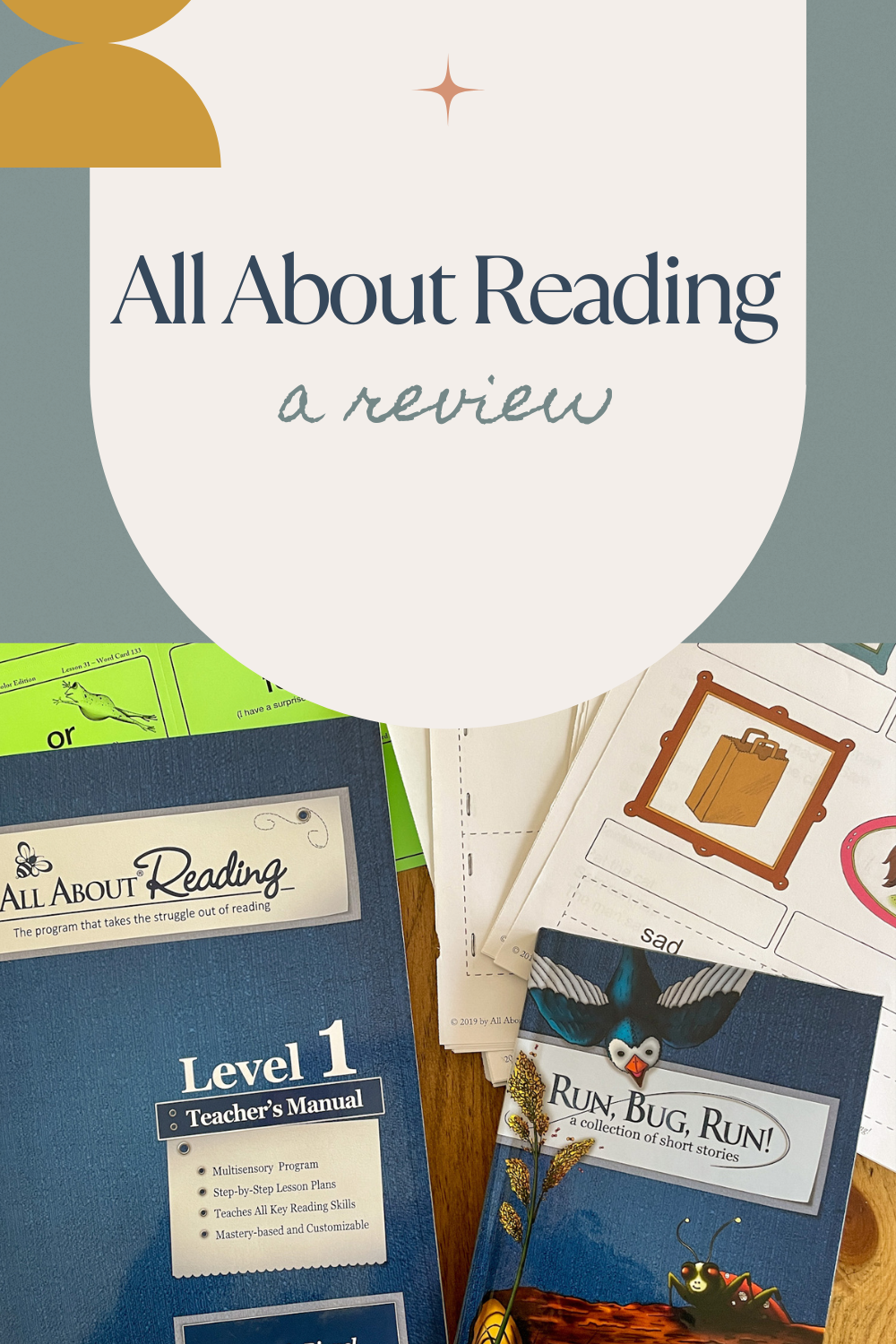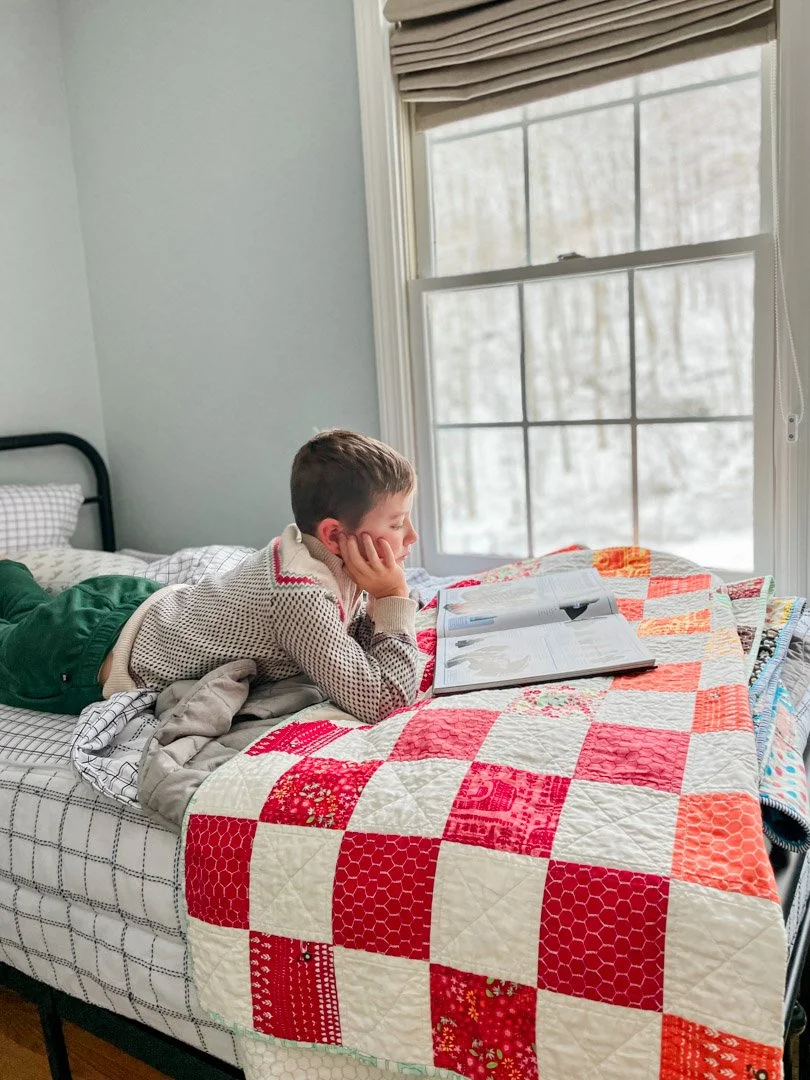how to choose a reading curriculum
One of the most frequently asked questions is, “What reading curriculum should I use given xyz.?” I wish it were as simple as saying, “Just use THIS AMAZING PROGRAM,” and move on, but our kiddos are so different (even within a family!). That said, there are many questions you can ask yourself that will help you select a program. And, if this post leaves you even more confused, I offer curriculum consulting. If you haven’t already read my post on language arts components, go ahead and read it here before moving on.
Let’s start by considering the elements I look for when evaluating a foundational reading program:
Is it research-based, and does it follow current best practices in reading instruction? Are children taught the sounds that letters make and how to blend them to read words? Does the program include mapping sounds to letters? Is it a program your child can use for all their foundational reading learning (kindergarten-2nd grade or more)? Things to watch out for (red flags) would include teaching children to memorize entire words (the reading brain does not store words visually); teaching children to make an educated guess based on a picture or beginning sound (the cueing system); and a specialized symbol system where letters appear differently than they do in everyday text, to name a few. If you are interested in more on the science of reading and current best practices, stay tuned for my upcoming course, Foundational Reading Instruction.
Does the program explain how and why to teach the material? I think this is especially important for homeschool parents — you are absolutely capable of teaching your child to read, IF given the right tools and support.
Does the program include decodable text? Children need to work with decodable text, that is text that is written to include only the letters/sounds the child has been taught thus far. If the program includes leveled text —text that has a repetitive pattern (I can run. I can jump. I can dance. I can sing.), includes many sight words the child is expected to have memorized, encourages guessing from picture or context clues — then it does not follow best practices and uses an outdated, ineffective approach to instruction.
Does the program teach writing and spelling alongside reading? Research tells us children benefit from learning to spell (encode) words that they are working on reading (decoding). We also know that children retain more reading and spelling instruction when writing (intentional copywork, original writing) is incorporated. Some reading programs include writing and spelling, while others do not. This is not a deal breaker, just something to consider when looking at programs.
Does the program teach using a multisensory approach? Are children being taught through letter tile manipulation? Games? Does it include auditory and visual practice? When children learn through a multisensory approach, they retain more.
Now, let’s think about what you need out of a curriculum.
How much prep work are you comfortable with? Some programs include more prep work than others. Prep work for a reading program might include printing digital materials, punching out word cards (perforated cardstock), preparing letter tiles, sorting workbook pages and materials, or putting together decodable readers.
What is your budget for a reading program? Most students need around 3-4 years of foundational reading skill instruction. There are programs where you purchase the teacher guide once and can use the same guide for your entire reading instruction journey. Other programs require you to purchase different levels each year.
Would you prefer to have extra resources to pull from if your child needs additional practice? Some programs come with extra resources — additional practice if your child needs more time on a skill (this is pretty common). Other programs are relatively bare bones, and you would need to find supplementary materials if your child needs additional practice.
Last but not least, what does your child need from a reading program?
What literacy skills does your child already have? If your child is beginning formal instruction already knowing the 26 letters and their main sounds or already blending CVC words, that is something to consider when selecting a program. All children benefit from explicit, systematic reading instruction, so even if your child has a jump start, it’s still important to start at the beginning of a program. However, you might choose a program that moves faster or is more bare-bones if your child is coming in with a lot of early literacy skills. If your child is starting this journey with a clean slate, then you might navigate towards a slower program that provides them ample time/practice to learn the new skills.
Would they benefit from a gentle approach to reading instruction? Some children benefit from a program that intentionally moves slowly, offering ample practice and time to master a particular phonogram. Other programs move through the letters and sounds at a much faster pace.
Are they a logical thinker? Do they like to know how something works and then try it out? Some reading programs, like Logic of English, teach from a very, well, logical standpoint. For example, Logic of English teaches all the sounds a letter makes, then focuses on the most common sound first. Some students benefit from this, while others find this confusing.
Are games or crafts important? Some programs include various games or crafts, while others are bare bones — just something to think about!
Now that you have considered the qualities of a good reading program, your needs, and your child’s needs, let’s examine my recommended curricula.
The following 5 programs are my current recommendations for foundational reading instruction. Click on each program title for a detailed review.
Pinwheels: A gentle but comprehensive program by Rooted in Language.
All About Reading: A tried and true reading program by All About Learning Press.
Foundations: A rules-based reading program by Logic of English.
Recipe for Reading: A no-frills, budget-friendly reading program.
UFLI Foundations: An open-and-go, budget-friendly reading program with digital support materials by The University of Florida Literacy Institute.
Do you like interactive quizzes? Check out my Reading Curriculum Quiz here!
A few final thoughts on selecting a foundational reading curriculum:
Spend some time really looking into a curriculum (curriculum samples, YouTube reviews, etc.) to see if it is a good fit for you and your child. Not every program will be a good fit for your child, and you know your child best.
Once you choose a program, stick with it. Jumping around from one curriculum to another likely means changing the order in which things are taught (scope and sequence) and might lead to confusion for your child. Furthermore, there will always be a learning curve when we try out a new program — both for you and for your child. If you have selected a solid structured literacy program and your child is struggling, consider changing the pace of the program so that you are focusing on one new skill a week and providing ample practice time.
Pick ONE curriculum — folks often come to me saying something like “I am using Logic of English, but I would really like to incorporate Rooted in Language. Can I do both?” I do not recommend implementing more than one reading program at a time — this will likely overwhelm you and your child and lead to confusion when different programs teach in different ways. IF you want to add in Rooted in Language strategies, your best option is to take some of their Laying a Path courses and then implement those into the curriculum you already have (so long as that curriculum is a good fit).
If you are overwhelmed by the choices, have a unique situation, or have a struggling reader and feel lost — I offer literacy and curriculum consulting.
I have worked with dozens of families to help them select curriculum and create intervention plans for struggling readers. In my consulting sessions, I bring my professional experience as a classroom teacher and my personal experience as a homeschool parent to help you create a plan tailored to your family.









